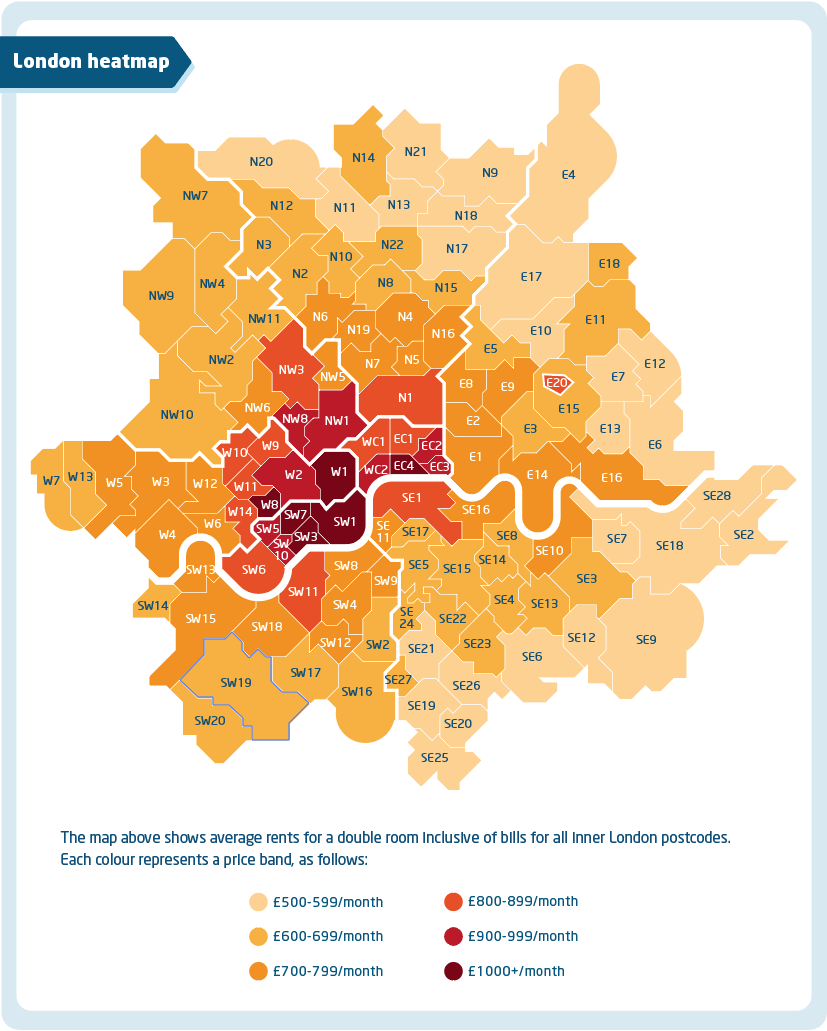London has always been an attractive destination for international students seeking high education and a vibrant cultural experience. However, finding accommodation in this bustling city can be quite challenging, especially due to the fiercely competitive rental market. In recent years, the private rental sector in London has seen falling lettings and increasing rent, and the situation has been exacerbated by the COVID-19 pandemic. As a result, students need to be well-prepared and proactive to secure their ideal place to live during their time in London.
The Impact of Falling Lettings and Rising Rent
The COVID-19 pandemic has had a profound impact on London's rental market. In the third quarter of 2022, Rightmove reported a staggering 24% drop in new property listings compared to the same period in the previous year. 1 Furthermore, a recent study revealed a concerning 41% reduction in rental property listings compared to the pre-pandemic average. 2 These trends have led to fierce competition among renters contending for limited available properties.
Additionally, many tenants have chosen to extend their tenancies rather than moving, leading to a significant increase in the average tenancy length. Landlords have taken advantage of this situation by asking for higher tenancy lengths to lock in record high rents. As a result, tenancy lengths have nearly doubled since before the pandemic. 3
Understanding Rental Costs
The cost of student accommodation in London has been rising rapidly in recent years. At the time of writing, the average rent for a room in the city stands at £971 per month, which is a significant 19% increase from the £814 average in 2022. However, keep in mind that rental costs can vary greatly depending on the location within London. Some areas may offer more affordable options, so it's worth exploring different postcodes to find a balance between rent and convenience.
Private halls of residence are generally more expensive than private rented accommodation but the gap between the two is narrowing and it is worth scouting halls out to assess your options. The average rent for a not en-suite room in a private halls in London is £9004
Resources to Find Accommodation
If you haven't got UCL accommodation, please visit Alternative Accommodation page which gives you details about non-UCL accommodation options. UCL also sometimes has a waiting list via the UCL Accommodation Portal.
When renting private accomodation, the more rooms in a property, the cheaper the average rent per person will be. If you are able to find a group to look with together, the best websites to look on are: Rightmove.co.uk and Zoopla.co.uk
If you are looking on your own and can’t afford to rent a one bed property, one option is to use Spare Room. This allows you to find a room in a flatshare but beware of scams.
To ease your search for accommodation in London, there are numerous resources available via our Housing and Accommodation page. We have loads of valuable guidance throughout the renting process too.
The most up to date information on average rental costs across different London boroughs can be found here.
This heatmap, produced by Spareroom, gives an indication of average rental costs for a room across different London postcodes.

Travel Costs and Location
When considering accommodation options, it's essential to take into account the location's proximity to your campus and the associated travel costs. Living further away from central London might mean cheaper rent, but it could also lead to higher transportation expenses. Always compare the total cost of rent and travel between inner-London and outer-London areas here on the Transport For London (TFL) website to make an informed decision.
Tenancy Length Considerations
Most students prefer a 12-month fixed-term tenancy to align with their academic year. However, it's crucial to pay attention to the landlord's requirements, as not all may be open to a 12-month lease. Some landlords might prefer longer tenancies to ensure steady income and avoid frequent turnover.
The Importance of Being Proactive
For international students looking to secure accommodation in London, acting quickly and being well-prepared is essential. With dozens of prospective tenants often competing for the same property, you must be ready to make decisions promptly. The moment you come across a suitable place, don't hesitate to express your interest and initiate the application process.
To enhance your chances of securing a rental property, ensure that you have all the necessary documents ready in advance. Most landlords will require a Right to Rent check, proof of identity, references, and evidence of financial stability. Having these documents readily available can help you stand out and demonstrate your reliability as a tenant.
Additional support
The Students' Union
The Students' Union supports students by providing resources and information to those looking for accommodation, as well as the rights students have when they are renting a property. All our resources can be found here. We also have an SU flatmate finder where you can post and view adverts for spare rooms. There is also the University of London's Facebook page.
University of London Housing Service
University of London Housing Services offer a house-hunting service available here and has lots of useful advice and information available.
Finding accommodation in London for students can be challenging due to the highly competitive rental market. Be proactive in your search, act swiftly when you find a suitable property, and ensure you have all the necessary documents prepared. By utilising available resources and considering the balance between rental costs and travel expenses, you can increase your chances of securing a comfortable and affordable place to call home during your time in this vibrant city.
Sources: